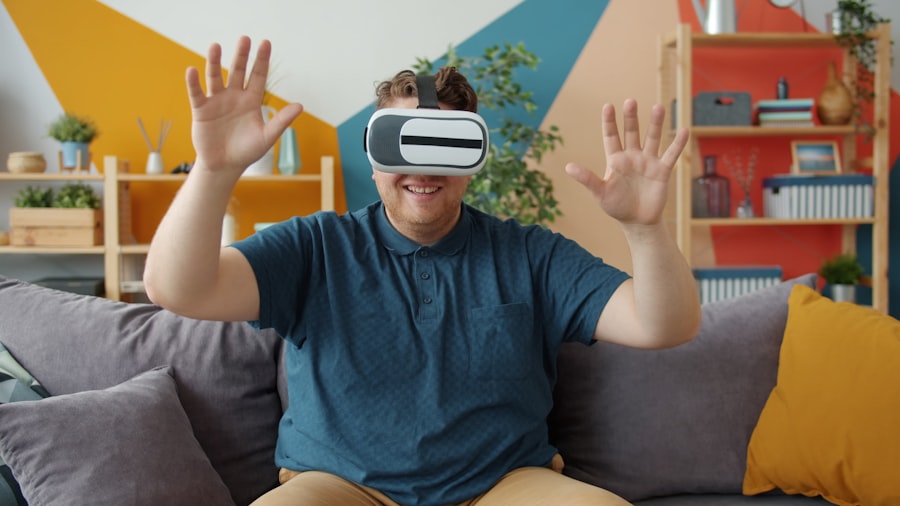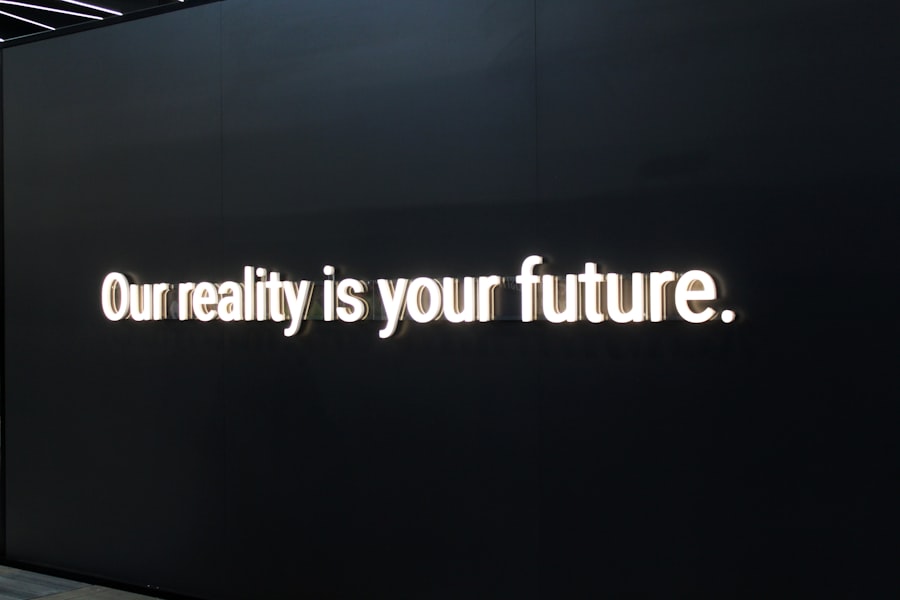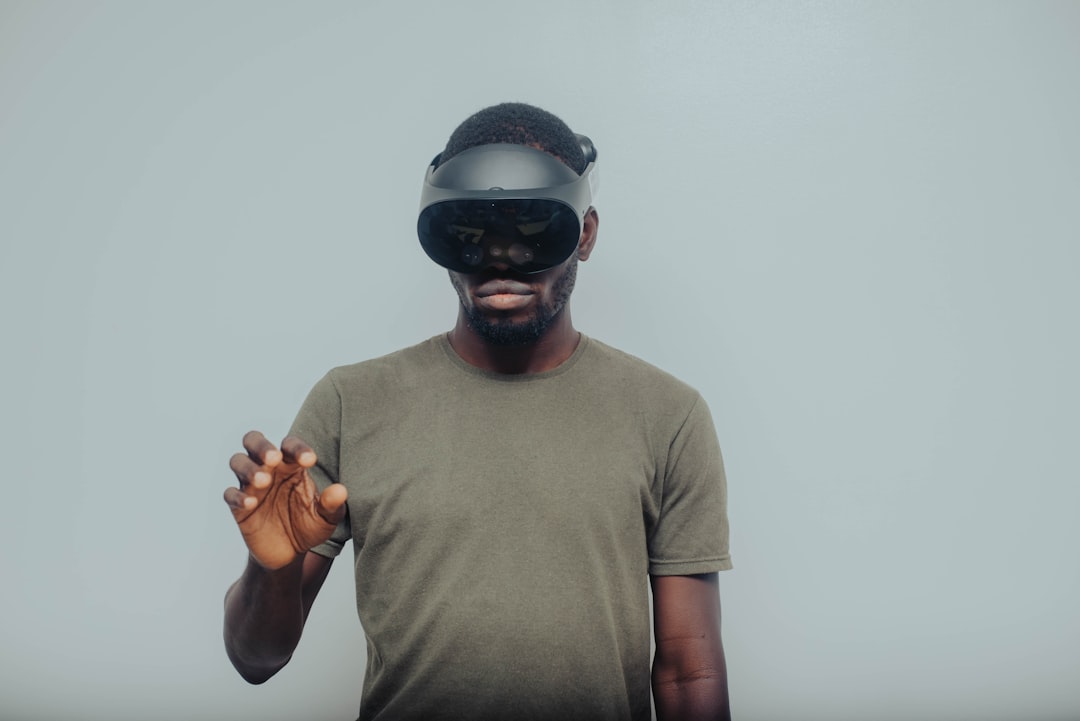As you navigate through life, you may find yourself pondering the nature of reality. What if reality is not a fixed entity but rather an interface through which you experience the world? This concept suggests that reality is a dynamic framework, shaped by your perceptions, beliefs, and interactions.
Just as a computer interface allows you to interact with complex systems in a user-friendly manner, reality as an interface implies that your understanding of the world is mediated by various factors, including sensory input, cognitive processes, and social influences. This perspective invites you to consider how your experiences are filtered through personal and collective lenses, ultimately shaping your understanding of existence. In this exploration, you will delve into the intricate relationship between perception and reality, examining how your senses and thoughts construct the world around you.
You will also consider the profound impact of technology on your perception, as well as the role of language and communication in shaping your understanding of reality. By engaging with these themes, you will uncover the multifaceted nature of reality and how it serves as an interface for human experience.
Key Takeaways
- Reality can be understood as an interface shaped by perception, language, culture, and technology.
- Our perception of reality is influenced and sometimes altered by technological advancements and communication methods.
- Multiple realities exist simultaneously, shaped by individual consciousness and social constructs.
- Scientific fields like quantum physics offer new insights into the nature and understanding of reality.
- Viewing reality as an interface challenges traditional notions and expands the possibilities of human experience.
The Relationship Between Perception and Reality
Your perception is a powerful tool that shapes your understanding of reality. It acts as a lens through which you interpret sensory information, allowing you to make sense of the world around you. However, this lens is not infallible; it is influenced by your past experiences, cultural background, and even emotional state.
For instance, two individuals may witness the same event but interpret it differently based on their unique perspectives. This divergence highlights the subjective nature of reality, suggesting that what you perceive may not necessarily reflect an objective truth. Moreover, your perception can be altered by various factors, including cognitive biases and social conditioning.
These influences can lead you to form beliefs that may not align with the actual state of affairs. For example, confirmation bias may cause you to seek out information that supports your existing beliefs while disregarding evidence that contradicts them. This interplay between perception and reality underscores the importance of critical thinking and self-awareness in navigating your understanding of the world.
The Influence of Technology on Our Perception of Reality

In today’s digital age, technology plays a significant role in shaping your perception of reality. The proliferation of smartphones, social media, and virtual reality has transformed how you interact with the world and each other. These tools create new interfaces through which you experience reality, often blurring the lines between the physical and digital realms.
For instance, social media platforms curate content based on algorithms that reflect your interests and preferences, creating a personalized reality that may not encompass the broader spectrum of human experience. Additionally, virtual reality (VR) offers immersive experiences that can alter your perception in profound ways. By simulating environments and scenarios, VR allows you to engage with realities that may be entirely different from your own.
While this technology can enhance empathy and understanding by placing you in someone else’s shoes, it also raises questions about authenticity and the nature of experience. As you navigate these technological landscapes, it becomes essential to remain aware of how they shape your perceptions and influence your understanding of reality.
The Role of Language and Communication in Shaping Reality
| Aspect | Metric/Indicator | Description | Example |
|---|---|---|---|
| Language Diversity | Number of Languages Spoken | Measures the variety of languages used within a community or globally, influencing perception and cultural reality. | Over 7,000 languages worldwide |
| Communication Channels | Types of Communication Used | Identifies the mediums (verbal, non-verbal, digital) through which reality is constructed and shared. | Face-to-face, social media, written text |
| Semantic Variation | Number of Meaning Variations per Word | Reflects how different interpretations of words shape individual realities. | Word “freedom” has multiple cultural meanings |
| Framing Effects | Impact Score of Language Framing | Quantifies how language framing influences perception and decision-making. | Positive vs. negative framing in news headlines |
| Language and Thought | Correlation Coefficient between Language Use and Cognitive Patterns | Measures the relationship between language structure and thought processes. | Studies showing linguistic relativity effects |
| Communication Frequency | Average Daily Interactions per Person | Indicates how often individuals engage in communication that shapes their social reality. | Approx. 60,000 words spoken daily |
| Reality Construction | Number of Shared Narratives | Counts common stories or beliefs that form collective reality within groups. | National histories, cultural myths |
Language is a powerful tool that shapes your understanding of reality. It serves as a medium through which you express thoughts, share experiences, and construct meaning. The words you choose can influence how you perceive situations and how others perceive you.
For example, the framing of an issue can significantly impact public opinion; calling a protest a “riot” versus a “demonstration” can evoke different emotional responses and interpretations. Moreover, communication extends beyond mere words; non-verbal cues such as body language and tone also play a crucial role in conveying meaning. These elements contribute to the construction of social realities, where shared understandings are formed through collective communication.
As you engage with others, consider how language shapes not only your individual perception but also the broader societal narratives that influence collective beliefs and values.
The Impact of Social and Cultural Constructs on Reality
Your understanding of reality is deeply intertwined with social and cultural constructs. These constructs encompass the norms, values, and beliefs that shape your worldview and influence how you interpret experiences. For instance, cultural narratives surrounding gender roles or societal expectations can dictate how you perceive yourself and others within those frameworks.
These constructs often operate at a subconscious level, guiding your thoughts and behaviors without your explicit awareness. Furthermore, social constructs can create divisions between groups based on race, class, or ideology. These divisions can lead to differing perceptions of reality among individuals from various backgrounds.
As you engage with diverse perspectives, it becomes essential to recognize how these constructs shape not only your understanding but also the experiences of others. By fostering empathy and open-mindedness, you can begin to challenge these constructs and expand your perception of reality.
The Philosophical and Psychological Perspectives on Reality

Philosophers have long grappled with the nature of reality, posing questions about existence, knowledge, and perception. From Plato’s allegory of the cave to Descartes’ skepticism about sensory experience, philosophical inquiries have sought to uncover the essence of reality. These discussions often highlight the tension between objective truth and subjective experience, prompting you to consider whether reality exists independently of your perception or if it is inherently shaped by it.
Psychology also offers valuable insights into how you construct reality through cognitive processes. Theories such as constructivism suggest that individuals actively create their understanding of the world based on their experiences and interactions. This perspective emphasizes the role of mental frameworks in shaping perception and highlights the importance of context in interpreting experiences.
By exploring these philosophical and psychological perspectives, you can gain a deeper understanding of how reality is constructed and perceived.
The Existence of Multiple Realities and Perspectives
As you navigate through life, it becomes increasingly evident that multiple realities coexist simultaneously. Each individual perceives the world through their unique lens shaped by personal experiences, cultural backgrounds, and social contexts.
Recognizing the existence of multiple realities encourages you to approach interactions with empathy and openness. By acknowledging that others may perceive situations differently based on their backgrounds or experiences, you can foster more meaningful connections and engage in constructive dialogue. Embracing this diversity allows for a more nuanced understanding of reality, ultimately enriching your own perspective.
The Connection Between Reality and Consciousness
Your consciousness plays a pivotal role in shaping your experience of reality. It serves as the lens through which you interpret sensory information and engage with the world around you. The interplay between consciousness and reality raises profound questions about existence: Is reality merely a projection of your consciousness?
Or does an objective reality exist independently of your awareness? Exploring this connection invites you to reflect on the nature of consciousness itself. Some philosophical traditions posit that consciousness is fundamental to existence, suggesting that reality emerges from conscious awareness rather than existing as an independent entity.
This perspective challenges conventional notions of reality and encourages you to consider how your consciousness influences not only your perception but also the very fabric of existence itself.
The Role of Science and Quantum Physics in Understanding Reality
Science has long sought to unravel the mysteries of reality through empirical investigation and experimentation. Quantum physics, in particular, has revolutionized our understanding of the universe at its most fundamental level. Concepts such as wave-particle duality and entanglement challenge traditional notions of reality by suggesting that particles can exist in multiple states simultaneously until observed.
These scientific discoveries prompt you to reconsider the nature of reality itself.
The intersection of science and philosophy invites profound questions about existence, perception, and consciousness—encouraging you to explore the boundaries between objective truth and subjective experience.
The Implications of Reality as an Interface for Human Experience
Understanding reality as an interface has significant implications for human experience. It suggests that your engagement with the world is not merely passive but active; you are constantly interpreting, constructing, and negotiating meaning based on your perceptions and interactions. This perspective empowers you to take ownership of your experiences and recognize that your understanding of reality is not fixed but fluid.
Moreover, viewing reality as an interface encourages you to cultivate awareness of how various factors influence your perceptions—be it technology, language, or social constructs. By becoming more conscious of these influences, you can navigate your experiences with greater intention and clarity. This awareness opens up possibilities for personal growth and transformation as you learn to challenge limiting beliefs and expand your understanding of what is possible.
Exploring the Boundaries of Reality and Interface
As you reflect on the concept of reality as an interface, consider how this perspective invites you to explore the boundaries between perception and existence. By recognizing that reality is not a singular entity but a complex interplay of factors—ranging from individual consciousness to cultural constructs—you can cultivate a deeper understanding of yourself and others. This exploration encourages you to embrace diversity in perspectives while remaining open to new experiences that challenge your existing beliefs.
Ultimately, by engaging with the multifaceted nature of reality as an interface, you empower yourself to navigate life with greater awareness, empathy, and curiosity—transforming your understanding of existence into a rich tapestry woven from countless threads of experience.
The concept of reality as an interface raises intriguing questions about our perception of the world around us. For a deeper exploration of this idea, you might find the article on the nature of perception and reality particularly enlightening. You can read more about it in this related article, which delves into how our senses shape our understanding of existence.
WATCH THIS! Your Brain Is Not Real (The Receiver Theory)
FAQs
What does the phrase “reality is just an interface” mean?
The phrase suggests that what we perceive as reality is a kind of user interface, a simplified representation or layer that hides the complex underlying nature of the universe, similar to how a computer interface hides the complexity of the hardware and software beneath it.
Is the idea that reality is an interface based on scientific evidence?
This idea is largely philosophical and speculative rather than empirically proven. It draws from theories in physics, computer science, and philosophy, such as simulation theory and digital physics, but remains a hypothesis without direct scientific proof.
How does the concept of reality as an interface relate to simulation theory?
Simulation theory posits that our reality might be a computer-generated simulation. The concept of reality as an interface aligns with this by suggesting that what we experience is a user-friendly layer designed to interact with a deeper, possibly digital, reality.
Are there any scientific theories that support the idea of reality being an interface?
Some interpretations of quantum mechanics and theories like the holographic principle hint at reality having layers or being information-based, which can be loosely related to the interface concept. However, these theories do not explicitly state that reality is an interface.
What philosophical questions does the idea of reality as an interface raise?
It raises questions about the nature of existence, perception, consciousness, and what is truly “real.” It challenges the assumption that our sensory experiences fully represent the external world.
Can the idea that reality is an interface be tested or proven?
Currently, there is no definitive experimental method to prove or disprove this idea. It remains a theoretical and philosophical concept rather than a testable scientific hypothesis.
Who are some notable thinkers associated with the idea that reality might be an interface?
Philosophers like Donald Hoffman have proposed that our perceptions are interfaces rather than direct representations of reality. Additionally, figures in physics and computer science have explored related ideas in the context of simulation theory and digital physics.
How does this concept affect our understanding of consciousness?
If reality is an interface, consciousness might be interacting with a simplified representation rather than the full complexity of the universe, which could influence theories about perception, awareness, and the mind-body relationship.
Is the idea of reality as an interface popular in popular culture?
Yes, themes related to reality being an interface or simulation appear in movies, books, and video games, such as “The Matrix,” which explore similar philosophical questions about the nature of existence and perception.
Does believing that reality is an interface have practical implications?
While largely theoretical, this belief can influence perspectives on technology, virtual reality, and the nature of human experience, potentially impacting fields like AI development, cognitive science, and metaphysics.
